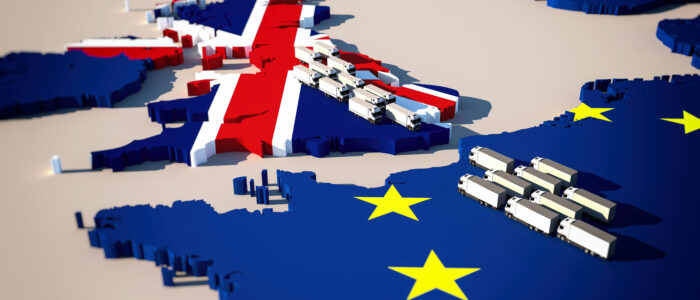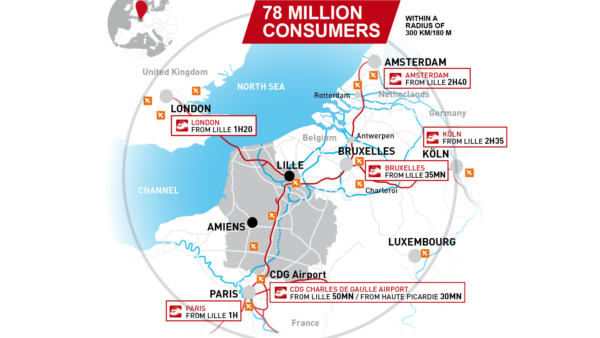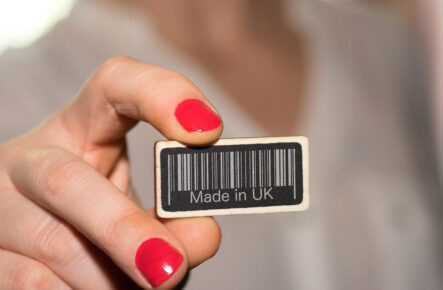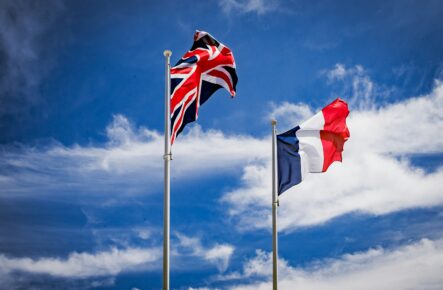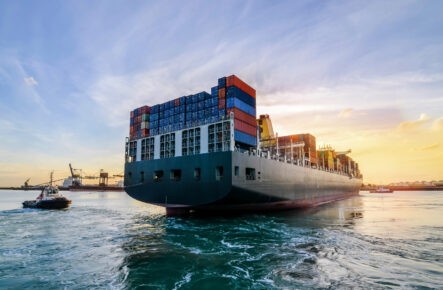Hauts-de-France: a land of supply chain infrastructures expertise
Hauts-de-France is a prominent logistics hub for all of Europe with its strategic location and exceptional transport infrastructures, which allow for efficient circulation of staff and goods while optimising delivery time.
Because we’re right on the English Channel, Hauts-de-France is a particularly strategic site for trade with Britain. Supply chain to and from the UK by road, rail or sea are highly likely to go through our region.
Optimise your shipping costs and maintain full control of your supply chain operations with a wide variety of transport modes, including:
🚚 Road
Road transport is still extremely popular with the logistics industry, and our outstanding highway system gives you direct access to major European corridors. 12 highways run through Hauts-de-France, at the centre of a crossroads linking Paris, Brussels and London.
🚢Sea
Our major ports – Calais, Boulogne and Dunkirk – constitute a genuinely international infrastructure that can provide you with efficient and timely access to not only Southern European and world markets.
🚆Rail
The region accounts for 10% of France’s total rail network. In particular, Dunkirk is France’s no. 1 rail freight hub, handling 13 million tonnes a year, or 11% of the national total.
And of course there are also ✈️ air connections and 🛥️ inland waterway transport.


